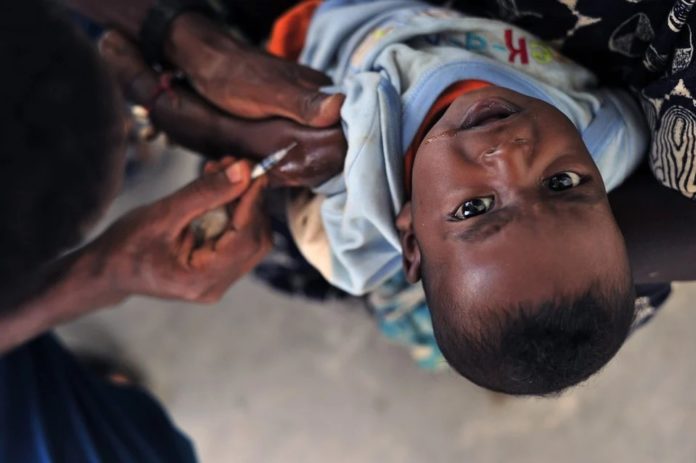New Delhi (NVI): Around the world, more than 13 million children below the age of one year did not receive any vaccine at all in 2018, many living in countries with weaker health systems. The current situation of coronavirus pandemic could worsen this condition and cause disastrous outbreaks in 2020 and well beyond.
These statistics came on the occasion of World Immunization week, which this year aims to promote the use of vaccines to protect people of all ages against disease. The theme this year is #VaccinesWork for All.
Millions of children are in danger of missing life-saving vaccines against measles, diphtheria and polio due to disruptions in immunization services. Most countries had suspended mass polio campaigns and 25 countries had already postponed mass measles campaigns, according to the recommended guidance.
According to a UNICEF analysis, an estimated 182 million children missed out on the first dose of the measles vaccine between 2010 and 2018, or 20.3 million children a year on average.
This is because the global coverage of the first dose of measles stands only at 86 per cent, well below the 95 per cent needed to prevent measles outbreaks.
Widening pockets of unvaccinated children led to alarming measles outbreaks in 2019, including in high-income countries like the US, UK and France.
Immunization saves millions of lives every year and is recognized as one of the most successful and cost-effective health interventions. Yet, there are still nearly 20 million children in the world today who are not getting the vaccines they need.
“The stakes have never been higher. As COVID-19 continues to spread globally, our life-saving work to provide children with vaccines is critical,” Robin Nandy, UNICEF Principal Adviser and Chief of Immunization said. “With disruptions in immunization services due to the COVID-19 pandemic, the fates of millions of young lives hang in the balance.”
Between 2010 and 2018, Ethiopia had the highest number of children under one year of age, who missed out on the first dose of measles, at nearly 10.9 million. It was followed by the Democratic Republic of the Congo at 6.2 million, Afghanistan at 3.8 million, Chad, Madagascar and Uganda with about 2.7 million each.
Meanwhile, in Africa, more children have missed out on vaccines over the past years due to rising number of births and stagnation in immunization services. This has led to repeated outbreaks of measles and polio in countries such as the Democratic Republic of the Congo.
In South Asia, an estimated 3.2 million children did not receive any vaccines in 2018. In Eastern and Southern Africa, the number of unvaccinated children has remained almost the same for the last decade, at around 2 million. All regions are now also battling COVID-19 outbreaks.
In order to combat this situation, UNICEF is sending critical vaccine supplies to immunize children, where possible, in areas with outbreaks and to replenish their routine supplies.
In Congo, UNICEF is supporting the Government with vaccine supplies and protective equipment to continue immunization activities in North Kivu province, where over 3,000 cases of measles were reported since January 1. And in Uganda, UNICEF procured 38,42,000 doses of bivalent oral polio vaccine (bOPV) to immunize 9,00,000 children below the age of one year.
Children should receive three doses of the polio vaccine before they celebrate their first birthday.
“Children missing out now on vaccines must not go their whole lives without protection from disease,” said Seth Berkley, CEO, Gavi, Vaccine Alliance. “The legacy of COVID-19 must not include the global resurgence of other killers like measles and polio.”








